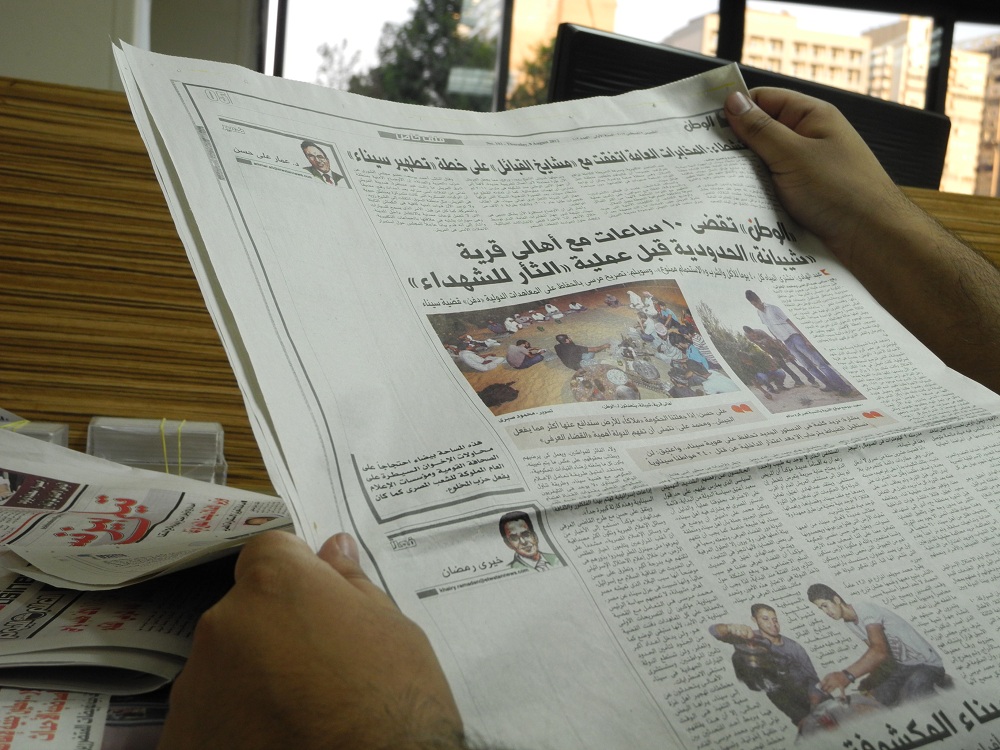CAIRO: Following years of legal battles and calls for state recognition, two Bahais issued their first national ID in which the religious affiliation field was left blank, instead of falsely listing Islam, Christianity or Judism as their religion.
Sixteen-year-old twins Nancy and Emad Hindy issued their ID cards after a legal battle which ended last March with Egypt s Supreme Administrative Court upholding, definitively, the right of Egyptian Bahais to obtain personal identification documents without stating their religious affiliation.
The Administrative Court in January 2008 had allowed Bahais to leave the religious affiliation field on birth certificates and identity cards blank.
The Hindys’ case was brought forward by the Egyptian Initiative for Personal Rights (EIPR).
“Nancy and Emad issuing ID cards which implementation of the new ID policy is a welcomed [yet] a long overdue step which we have been working on since the court ruling in March, said chairman of EIPR, Hossam Bahgat.
EIPR’s case against the Interior Ministry relied on the argument that forcing Bahais to list their religion as one of the three religions officially recognized by the state constitutes a violation of the right to freedom of belief, equality and privacy, in addition to being a violation of Islamic Sharia.
“It took five months. We hope that the hundreds of other applications of Bahais to different official documents will now be processed in a much faster way and we will continue to monitor this over the next few weeks, he added.
The teenage twins have been unable to obtain birth certificates and have been prevented from enrolling in school as a result, forcing their father to send them to school in Libya.
Even though the court ruled in favor of the Bahais in 2008, none of them have been able to issue official documents.
The Interior Ministry relied on the appeals made by a number of lawyers since January 2008 in order to justify the delay and the continued application of the policy implemented from 2000 onwards (when computerized ID cards and birth certificates were introduced) which prevented Egyptian Bahais from obtaining or renewing these documents unless they falsely list their religion as Muslim, Christian or Jewish.
Without these documents Egyptian citizens cannot access state services such as healthcare and education, and face criminal penalties if they fail to produce an ID card on request by a police officer.
“Issuing the national ID cards is simply an implementation of the Egyptian constitution, Raouf Hindy, the twins’ father and the official spokesperson for Egyptian Bahais, told Daily News Egypt.
Hindy was referring to two articles of the Egyptian Constitution: article 40 which states, “All citizens are equal before the law. They have equal public rights and duties without discrimination due to race, ethnic origin, language, religion or creed ; and article 46 which states, “The State shall guarantee the freedom of belief and the freedom of practice of religious rites.
“I was hoping that the word ‘Bahaai’ would be written but we settled for the dash to be put instead because I was afraid that would put the government in a difficult position, said Hindy.
“But anyway this is a step forward, it a first small step but it’s a move towards the right direction, in which the person is not forced to write incorrect information, towards respecting others and accepting them, he added.
Hindy explained that he went through the long legal battle as he “didn’t want to be a fraudster and forge official document by writing incorrect information.
Egyptian Bahais are “legally dead, according to Hindy. “They don’t have any official documents and they are not on the record, no birth certificates or national ID cards. Bahai university students are threatened to be expelled at any time, don’t know their stance from the military, they are denied the right to have normal daily lives like everyone else, he explained.
“So issuing the national ID will make their daily lives much easier and we have high hopes and ambitions that there will be more positive steps in the future, said Hindy.
Egyptian Bahaais will now follow the legal procedures to issue official documents but it’s not clear whether they’ll take more steps towards full recognition by the state and society.
“In the future, people will become more modernized and will have more tolerance, so Bahais will certainly have more demands which that period in time would impose, said Hindy.
Bahgat also confirmed that they will be following up on the Bahais’ case to ensure they get their rights. EIPR has been the legal representative of Bahais; Hindy’s case follows an earlier, unsuccessful, action brought by EIPR in 2004 which sought to allow Egyptian Bahais to list their religion as such in official documents.
The Administrative Court ruled in favor of Bahais in April 2006, but this verdict was subsequently overruled on appeal in December of the same year.

